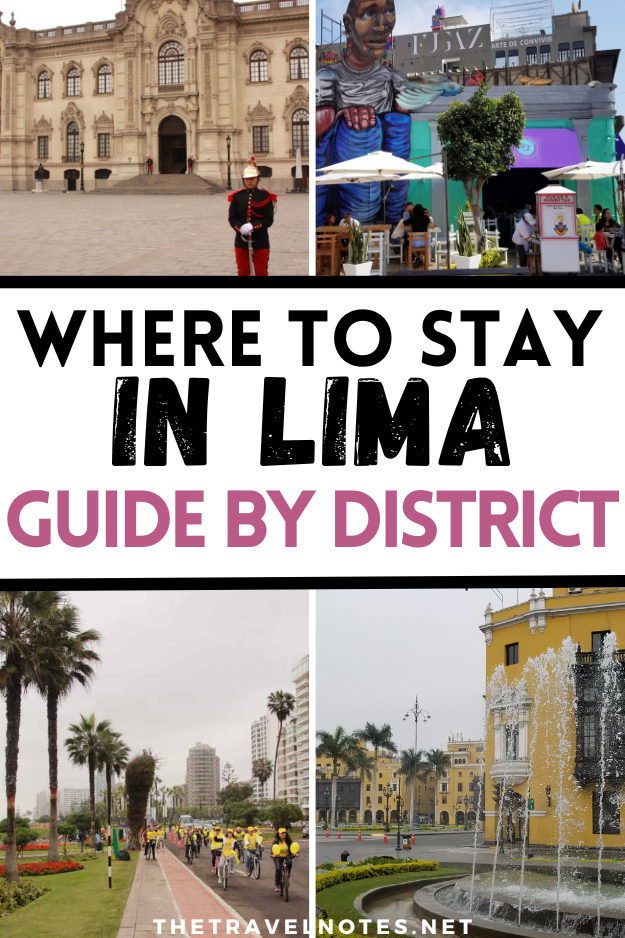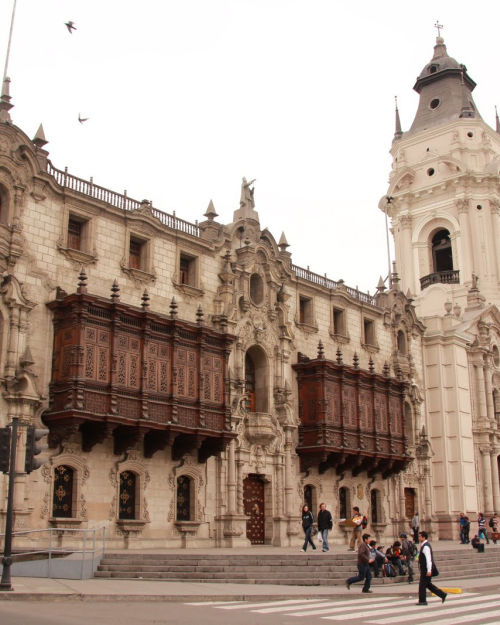
Are you planning a trip to Lima, Peru? While many travelers rush to see Machu Picchu, Lima, with its diverse attractions, deserves a place on your itinerary.
This dynamic capital blends colonial charm with modern life, and each district offers something unique—Lima has it all, whether you’re into food, art, beach walks, or nightlife.
If it’s your first time here, figuring out where to stay in Lima can feel overwhelming.
I created this guide with a handy map of Lima’s central districts and practical advice. It’s designed to help you choose the best neighborhood for your travel style—whether you prefer the bustling energy of Downtown Lima, the upscale vibe of Miraflores, the bohemian charm of Barranco, or something else.
“But don’t let your first impression of Lima mislead you because the ride from the airport to town is chaotic and not representative of Lima’s gems. It’s best not to look out the window for the first 20 minutes. Ask the driver to take the route along the coastline that offers you some welcoming views of this great coastal city”.
Angelo from The Netherlands, who lived two years in Lima
About Lima
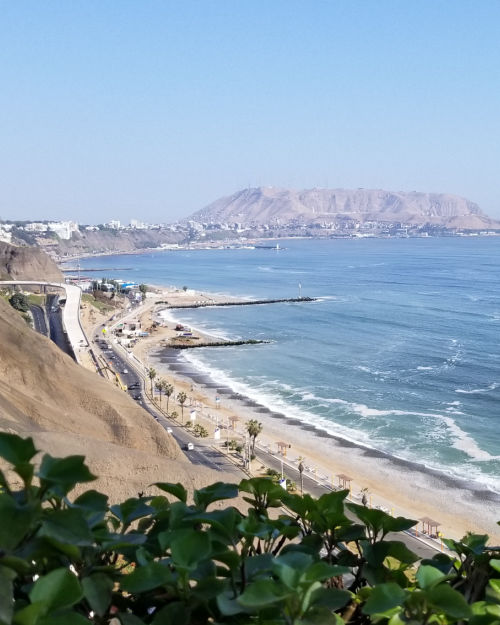
Lima, the capital of Peru, is located between the Andes and the Pacific Ocean.
Although Lima is a desert, the rivers Rimac, Chillon, and Lurin give it many green areas.
Spanish conqueror Francisco Pizarro founded Lima in 1535; Peru was a kingdom of the Spanish crown for many years.
Since then, it has become a fantastic place for food lovers, as the World Travel Awards (WTA) have chosen it five times as the best culinary destination in the world.
One of the restaurants in Lima, “Central,” owned by renowned Peruvian chef Virgilio Martinez, is ranked the number one restaurant in the world.
Map of Lima
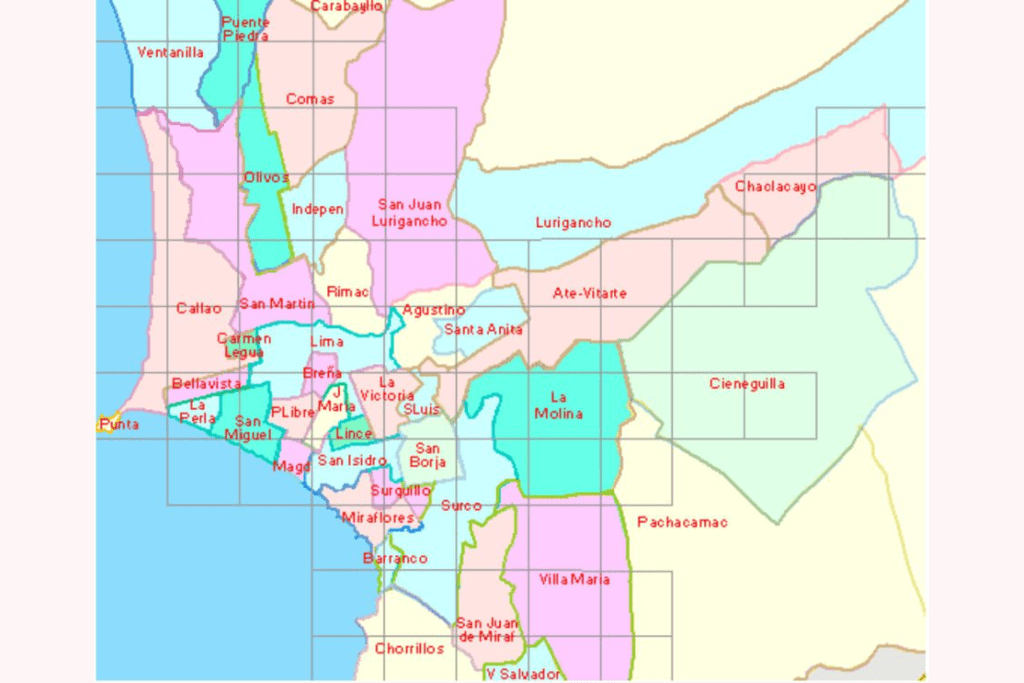
Lima is a huge city with 43 districts,, and this map can give you an idea of the most popular places to stay.
About the weather
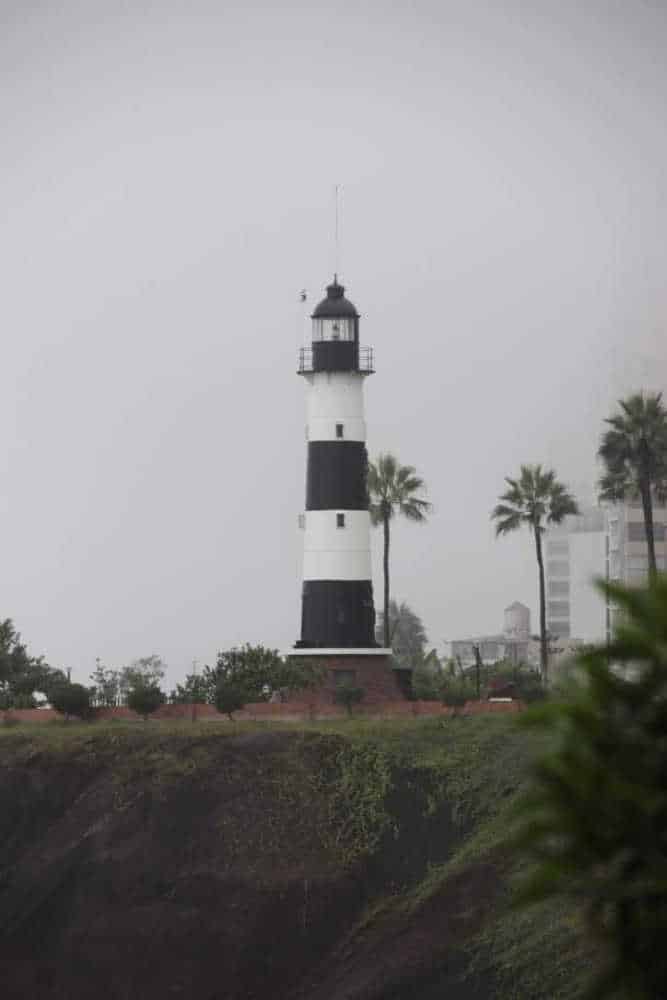
Lima is the only capital city in South America that sits on a beach, making it the only capital port city on the continent. Lima’s weather is always great because it is never too cold or warm, and there is almost no rain.
You will occasionally experience a mist-like rain known as “Garúa.” The sky is almost always cloudy and overcast, so Lima’s sky has been nicknamed the “Donkey’s belly” by locals. However, I remember many beautiful sunny days when the sky was blue.
Interested in staying in unique places across Peru? Don’t miss my stay with the Uros on Lake Titicaca—an incredible floating island experience.
Lima’s districts
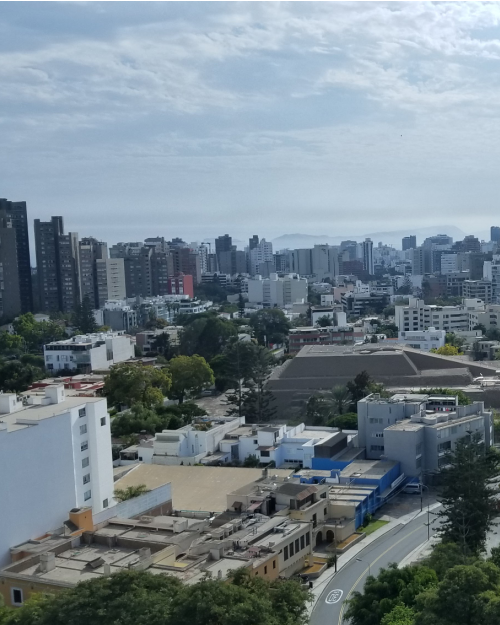
Lima, a sprawling metropolis with over 9 million inhabitants and 43 districts, offers diverse experiences.
In this article, we’ll explore Lima’s best districts and places to stay, highlighting areas known for their safety, vibrant culture, and attractions. Discover where to enjoy the city’s rich history, culinary delights, and modern amenities.
1. Miraflores
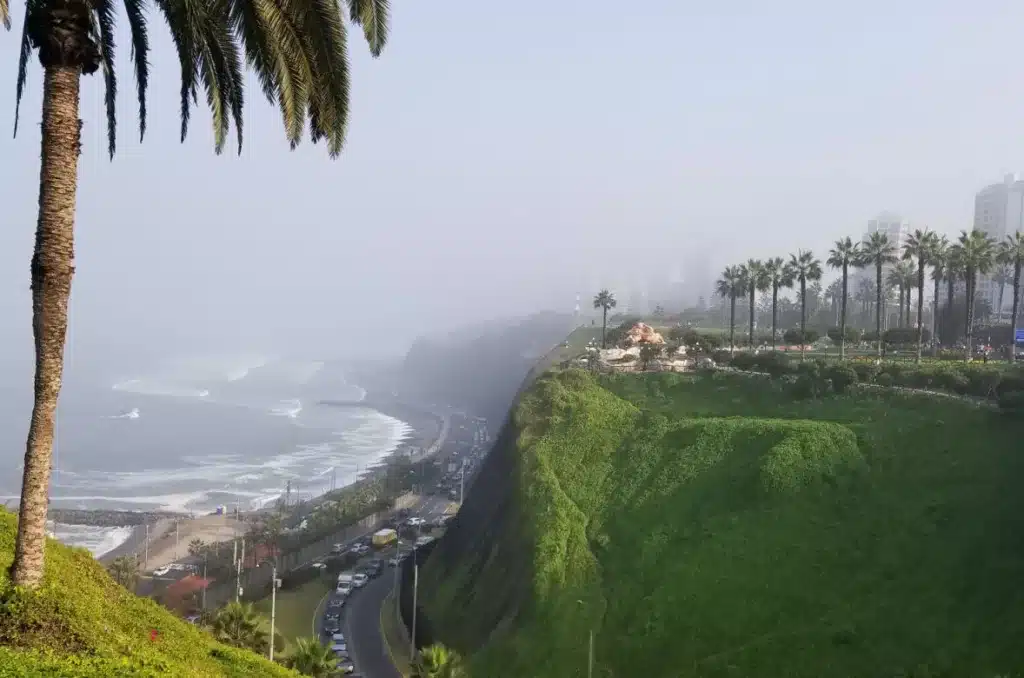
Scenic Views and Boardwalk
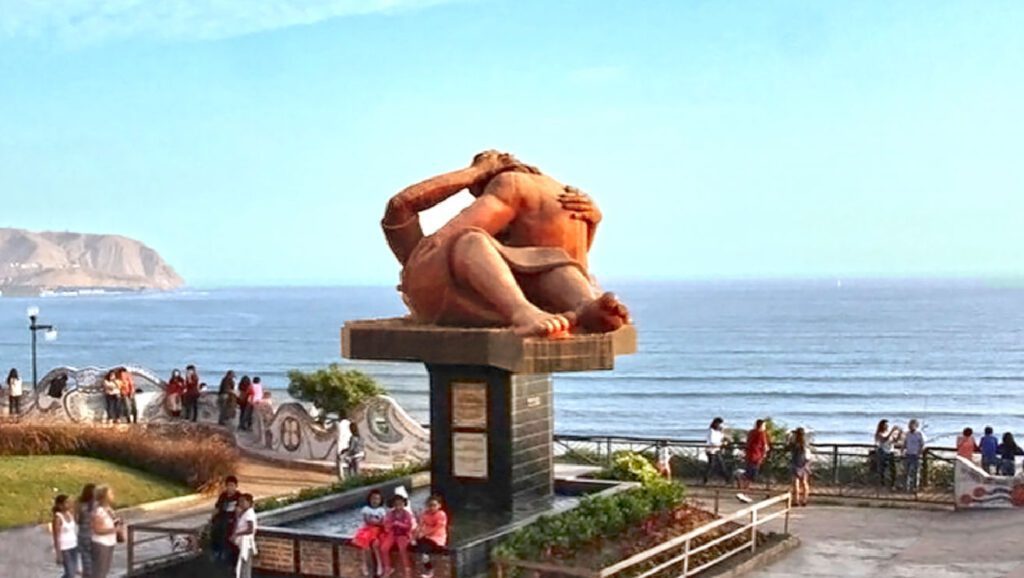
Miraflores offers breathtaking views of mountain cliffs and the Pacific Ocean. The district’s boardwalk is popular for cycling and strolls, and it provides stunning ocean vistas.
This scenic path also connects Miraflores to Barranco, making it an excellent route for intercity travel and outdoor activities.
Looking for nature and eco-tourism in Peru? Discover my experience Sleeping in an Eco Lodge in the Tambopata Jungle
Vibrant Dining and Shopping
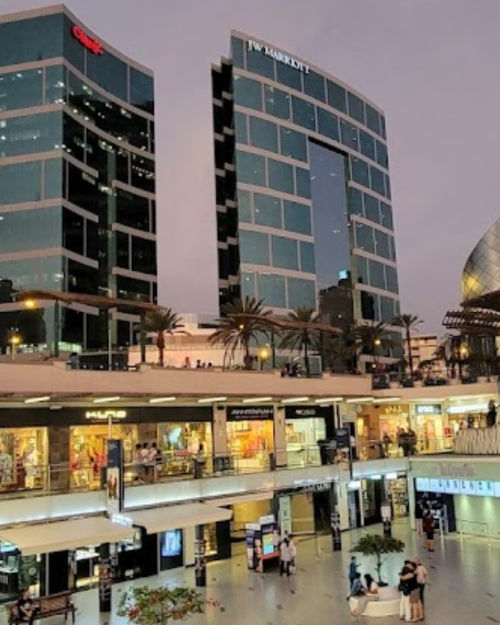
Miraflores boasts a rich concentration of bars, cafes, shopping centers, and restaurants.
The district’s vibrant dining and shopping scene ensures there is always something to do, catering to diverse tastes and preferences, making it a bustling hub for locals and tourists.
Pedestrian-Friendly Streets
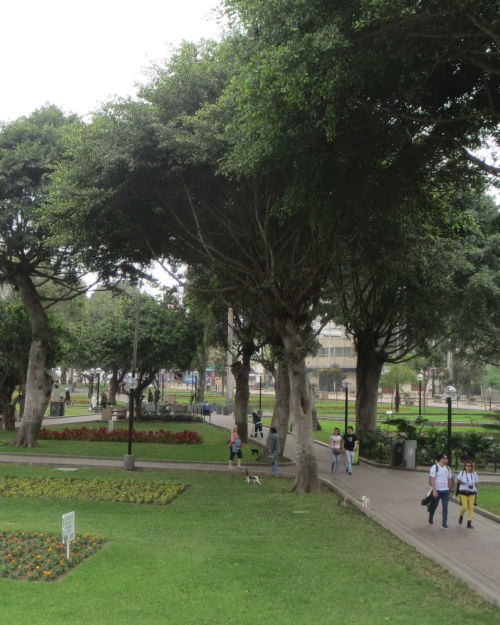
Miraflores is one of Lima’s most pedestrian-friendly districts, with well-maintained sidewalks, parks, and public spaces.
This walkability encourages exploration and contributes to the district’s charm, making it easy for visitors to navigate and enjoy its many attractions on foot.
Safety and Security
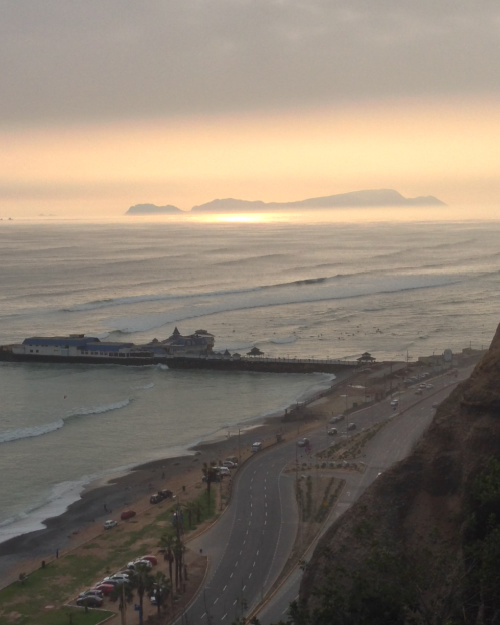
Miraflores is known for its high level of safety, with the Municipal Guard Service of the Serenazgo patrolling 24 hours daily.
This constant security presence ensures a carefree and easygoing atmosphere, enhancing the district’s appeal and making it a popular tourist destination.
Cycling Paths and Connectivity
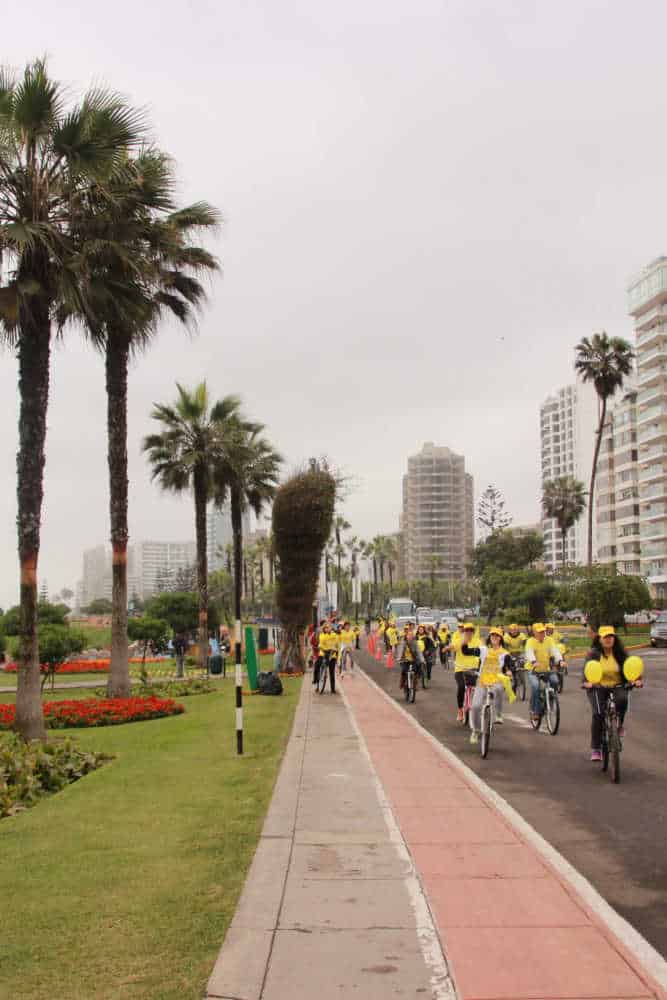
The district features excellent cycling paths, particularly along the boardwalk overlooking the Pacific Ocean.
These paths are perfect for leisurely rides and connect Miraflores with the neighboring district of Barranco, promoting intercity travel and offering an active way to explore the area.
2. Barranco
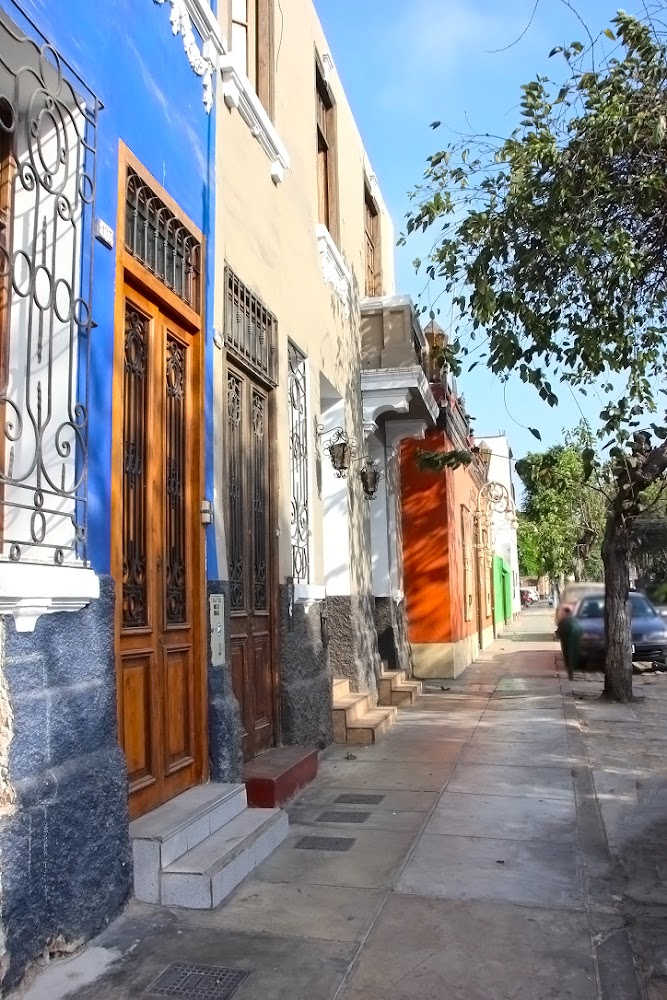
Once you’ve picked a district, discover 14 Best Places to Visit in Barranco—Lima’s bohemian neighborhood filled with art and charm.
Historical Origins
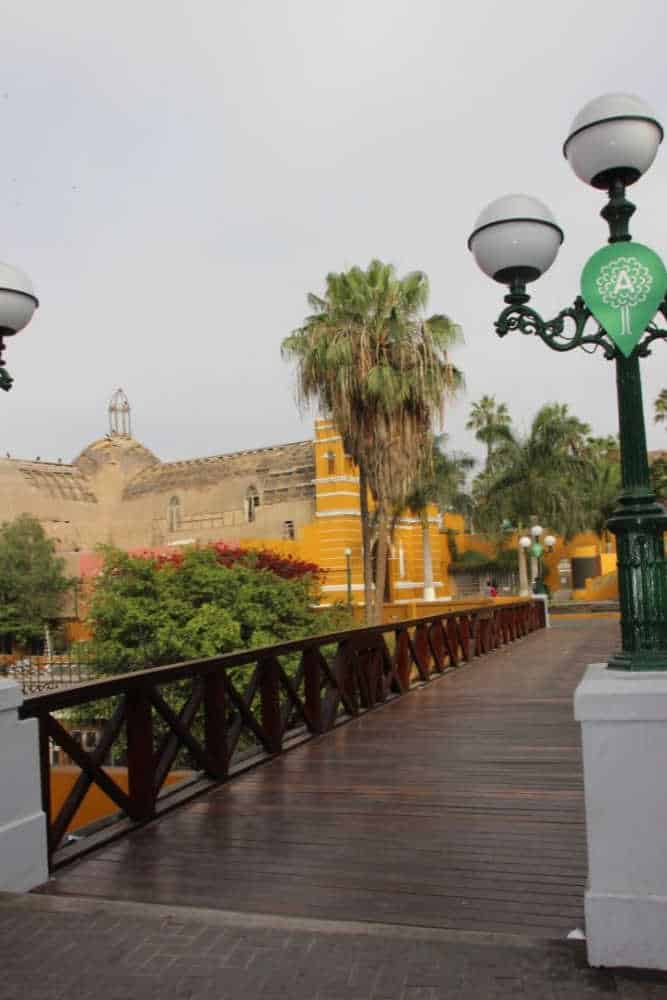
Founded in 1864, Barranco became the preferred beach resort for Limeños by the early 20th century. The district’s name, derived from the cliffs (“Barrancos”) that separate it from the beaches, reflects its unique geography and historical allure as a coastal retreat.
Bohemian Charm
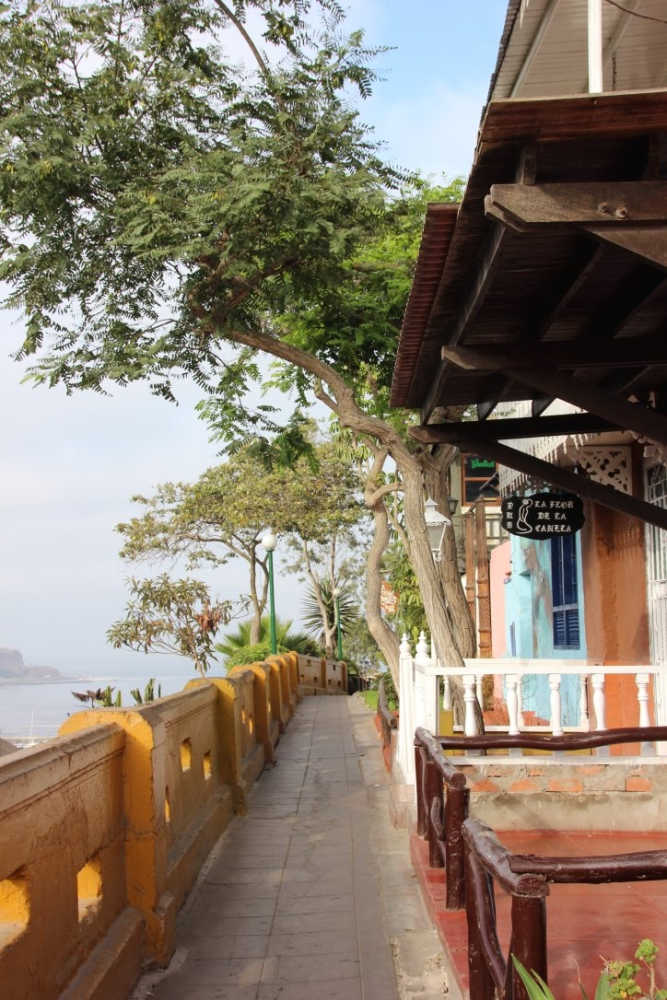
Barranco is renowned for its bohemian streets, filled with old houses, cultural centers, and vibrant artistic life. The district’s romantic sunsets and eclectic atmosphere make it a haven for artists, writers, and anyone seeking a creative and inspiring environment.
Nightlife Hotspot

Barranco is a nightlife hotspot boasting numerous bars, restaurants, and live music venues. Its dynamic and lively scene attracts locals and tourists, offering diverse entertainment options and a vibrant social life, especially after sunset.
Architectural Beauty
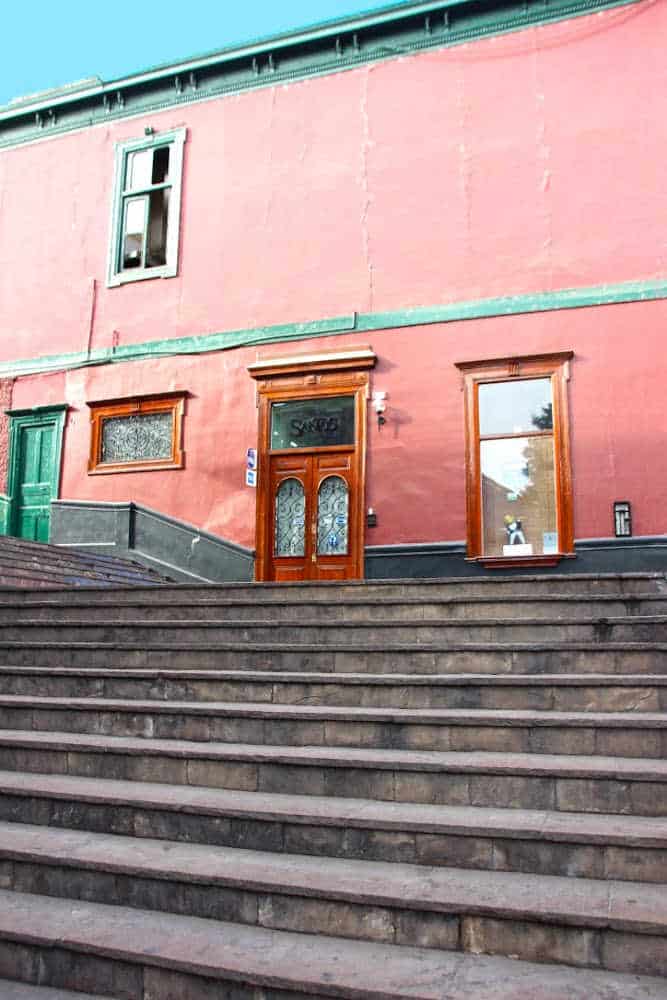
The district features well-preserved neo-colonial houses painted in bright, eye-catching colors. These architectural gems add to Barranco’s charm, showcasing the area’s historical and cultural heritage while providing a picturesque backdrop for visitors exploring its streets.
Cultural Richness
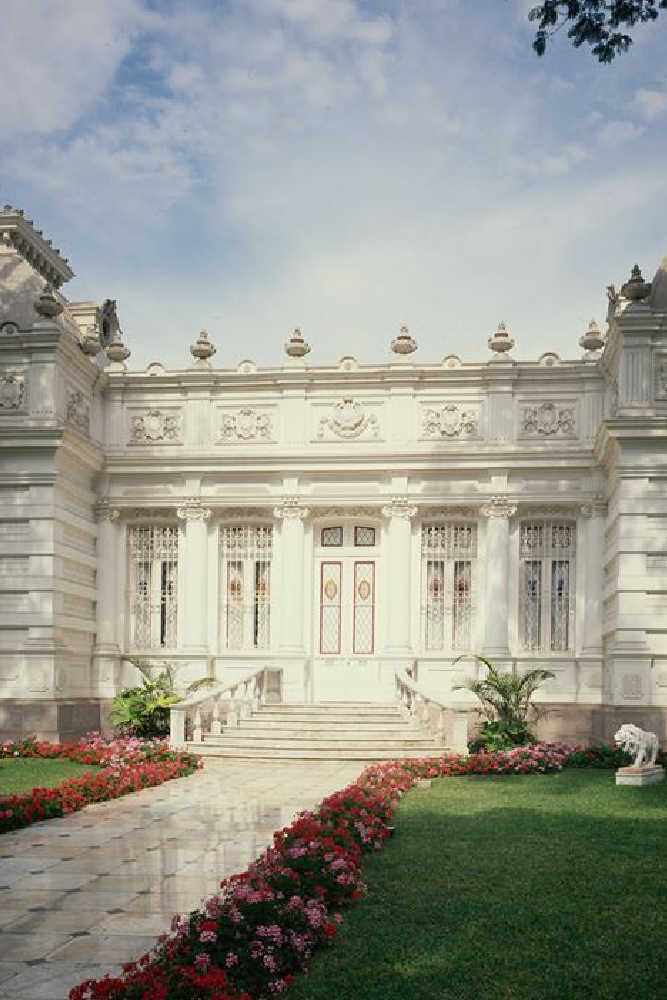
Barranco is home to fascinating museums and cultural centers, making it a worthwhile destination for culture enthusiasts. Visitors can immerse themselves in the district’s rich history and artistic heritage, exploring a variety of Museums and cultural activities that highlight Barranco’s unique identity.
3. San Isidro
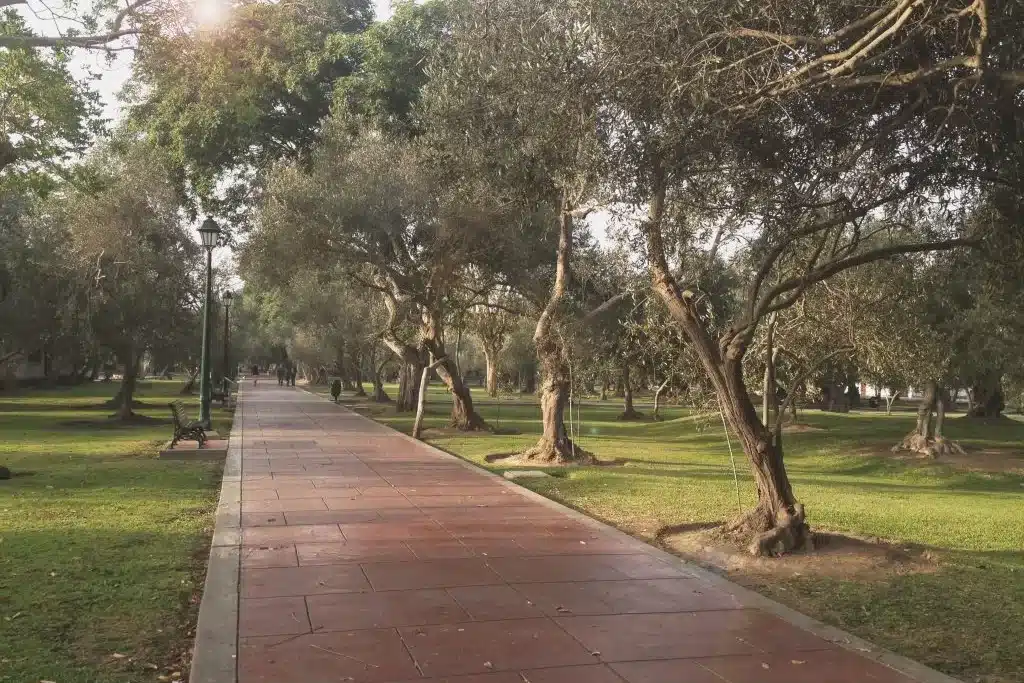
Financial Hub
San Isidro is one of Latin America’s key financial centers, with numerous banks and financial institutions lining its streets. The district is a bustling hub for business activities, attracting professionals and companies worldwide and solidifying its reputation as an economic powerhouse in Lima.
Prestigious Real Estate
San Isidro is an upper-class district renowned for its high property values. It is considered one of the most expensive places to buy or rent in Lima, with some of the highest prices per square meter. Its exclusivity makes it a sought-after location for luxury living.
Diplomatic Presence
San Isidro hosts many embassies, underscoring its importance and prestige. These diplomatic missions add to the district’s international character, making it a significant area for global affairs and international relations within Lima.
Strategic Connectivity
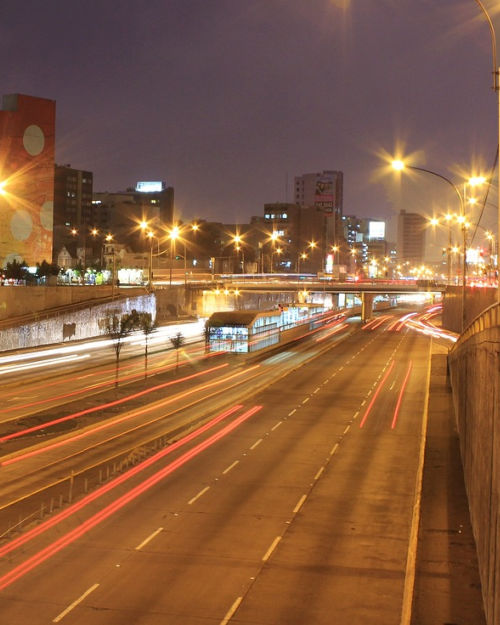
Strategically located near Miraflores, San Isidro offers excellent connectivity via Javier Prado Avenue and Paseo de la República (“Via Expresa”).
These significant thoroughfares provide convenient access to Lima’s eastern, western, northern, and southern districts, enhancing the district’s accessibility and appeal.
Vibrant Weekdays, Quiet Weekends
On weekdays, San Isidro is lively, with numerous restaurants, bars, and shops bustling with activity. However, the district becomes quieter on weekends as many establishments close, providing a peaceful contrast to the weekday hustle and catering to busy professionals and those seeking tranquility.
4. Downtown Lima

Founding and Early History
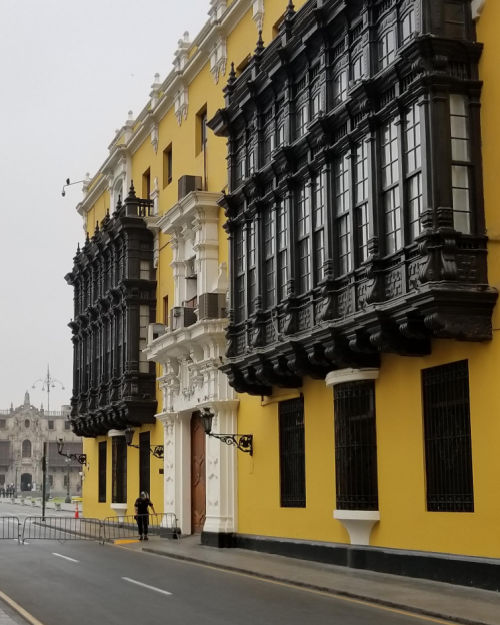
Conquistador Francisco Pizarro founded downtown Lima in 1535, who selected this strategic location for the Government Palace to control irrigation water.
Lima quickly became the capital of the powerful Viceroyalty of Peru. Spanish residents constructed many colonial buildings and churches, establishing the city’s historical and architectural heritage.
Decline and Renewal
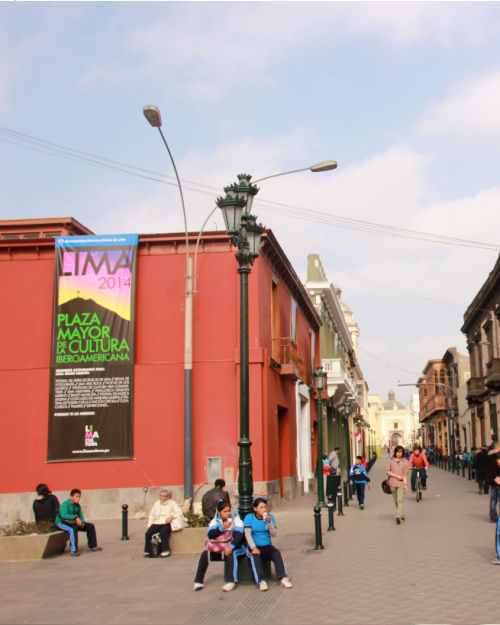
In 1989, downtown Lima faced issues with street vendors, trash, and crime. Architect Juan Gunter and Eduardo Arrate initiated the “Patronage of Lima,” a pact to clean the streets and protect historic buildings.
Their efforts successfully transformed the area into a safe and attractive place for tourists and locals.
UNESCO Recognition
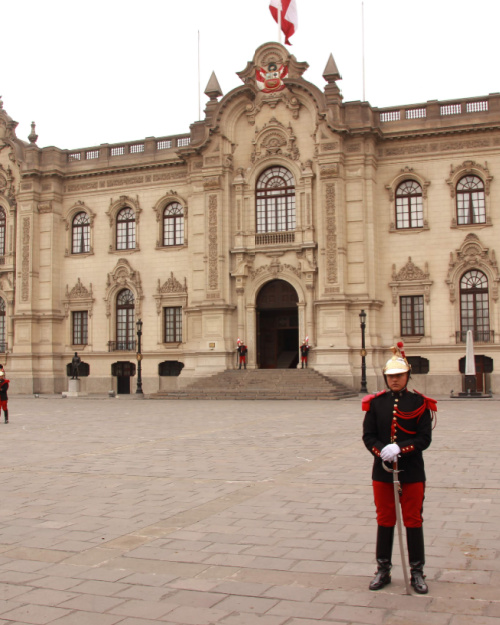
In 1991, UNESCO recognized Lima’s historic center as a Cultural Heritage of Humanity.
This acknowledgment highlighted Lima’s significant historical and cultural value, preserving its colonial architecture and protecting its numerous historic monuments for future generations.
Cultural Richness
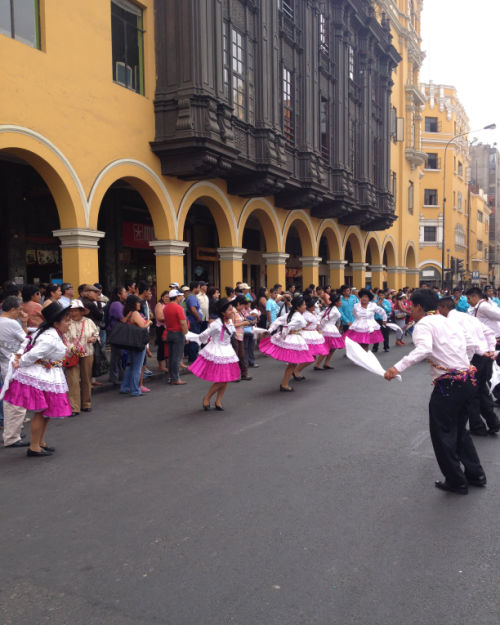
Downtown Lima is home to 29% of Peru’s cultural heritage. The area boasts many colonial buildings, churches, and monuments, reflecting the city’s rich history.
Visitors can explore these historical sites, gaining insight into Lima’s past and its importance during the colonial period.
Practical Considerations
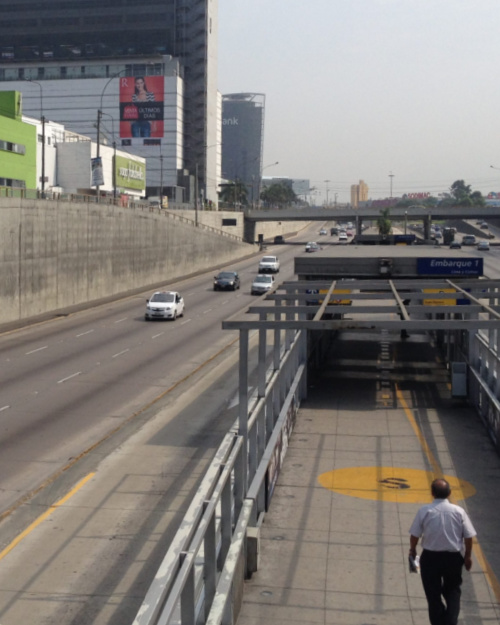
Due to heavy traffic, access to downtown Lima from districts like Miraflores can be time-consuming.
Additionally, the area has limited nightlife, making it quieter in the evenings. However, its historical significance and cultural richness make it a must-visit destination during the day for tourists.
Lima is a vast city, and I hope this article helps you plan your trip there!
🏙️ You Might Also Like
Exploring Lima or planning a longer trip through Peru? Don’t miss these cultural stays and off-the-beaten-path adventures:
🎨 14 Best Places to Visit in Barranco – Lima’s Creative & Bohemian Side
🛖 Staying with the Uros – A Unique Experience on Lake Titicaca
🌿 Sleeping in an Eco Lodge in the Tambopata Amazon Jungle
🚶 Amstel River Walk – Nature Meets City in Amsterdam
🚆 Japan by Train – Travel Slow, Travel Mindfully
Pin this post
